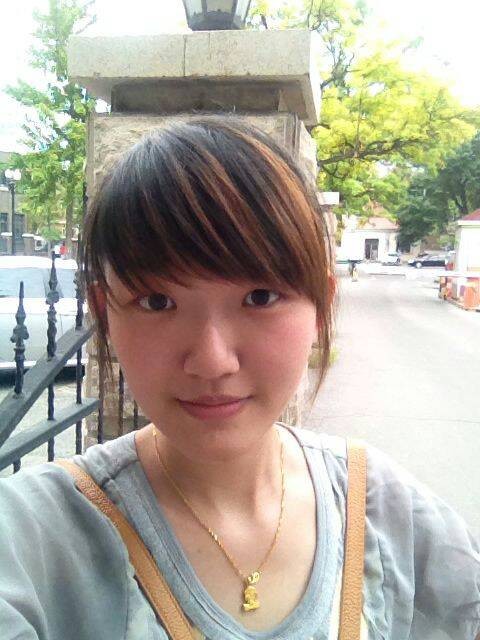Chinese Classic way of studying: 5 steps in learning
 Good afternoon everyone! I am Wang Jinjing, a member of the Students International Communication Association (SICA). It’s a great pleasure for me to present to you the Chinese classic way of studying which has been passed down through generations of prominent Chinese scholars. This classic studying method includes five aspects: previewing, taking classes, doing exercises, reviewing and taking tests.
Good afternoon everyone! I am Wang Jinjing, a member of the Students International Communication Association (SICA). It’s a great pleasure for me to present to you the Chinese classic way of studying which has been passed down through generations of prominent Chinese scholars. This classic studying method includes five aspects: previewing, taking classes, doing exercises, reviewing and taking tests.
Step1: Previewing
For starters, previewing the course would be of great use. An adequate preview usually requires reading the textbook for at least twice and finding the key points and the difficult parts of each chapter. After finishing this process, students should turn to reference books or the internet to deal with their confusion over content, and then mark the problems that still unsolved. Try to make the preview as a habit and you will find it so helpful.
Step2: Taking classes
The second step is to attend the class and absorb new knowledge from it. Here are some recommended practices during the class. First of all, listen attentively to the teacher, which can help you form strong basic concepts about the class. Then during the class you should pay attention and particularly to the problems marked out when previewing. Also, it is strongly suggested that students should think critically over the points mentioned in class and actively participate in any discussion with the teacher. Taking notes of what you deemed important is useful as well.
Step3: Doing exercises
The next stage involves doing exercises. Students should take seriously the assignments whenever the teacher asks, and if demanding problems are encountered during doing exercises, it is very helpful to discuss them with the teacher or the classmates. After finishing the assignments, it is useful to look for more exercises until you get excellent command of the subject you are learning. Remember that exercise can never be enough, we have become skilled in our area through reiterative training, that's why Chinese students can get incredibly good marks in different exams.
Step4: Reviewing
The step of review comes next. In this vital stage, students need to build clear structure of the knowledge acquired in class. It is also crucial for them to find the connection between different chapters so as to establish a systematic notion of the course. Finally, it is recommended to redo the exercises that you found extremely difficult at the beginning in order to enhance your comprehension.
Step5: Taking tests
The last step is the testing of your learning progress. Many students may feel anxious about scores; however more attention should be paid to the process of preparing and taking the exams. For any learner, exams have always been an effective way to push one forward and to deepen one’s understanding of the knowledge learned in class.
A diligent student should manage his time efficiently and make a study plan. Taking an ordinary Huster as example:
|
6:30---7:00
|
Get up and have breakfast
|
|
7:10---8:00
|
Morning reading
|
|
8:00---11:50
|
Have classes or do self-studying
|
|
11:50--12:30
|
Have lunch
|
|
12:30---13:40
|
Take a nap or do extra curriculum reading
|
|
14:00---17:30
|
Have classes
|
|
17:30---18:10
|
Have dinner
|
|
18:30---10:30
|
Have classes, do experiments or do self-studying
|
|
10:30---11:00
|
Review
|
|
11:00
|
Sleep
|
A quite tight schedule as it may seem, multitudinous hard-working students in HUST actually are living by such plans. However, we are not bookworms, we are just trying our best to pursue our dreams, the difference between the ordinary people and the extraordinary ones is that little “extra”.
My Chinese Learning Experience
Good afternoon everybody!
My name is Elyse and I am from Burundi. Today I would like to share with you some of my five years experiences studying in Chinese at HUST.
I came to HUST in September 2008 and started learning mandarin for a year before I was enrolled in the Architecture program for a Bachelor degree. It was then when I realized for the first time, my identity as a foreign student, since the program courses were all in Chinese, which is a total foreign language.
The first semester went on quite smoothly, since some of the subjects such as calculus and computer fundamentals were already familiar to me, but the real struggle came in the second semester: The courses became more sophisticated, and I started to puzzle at every single sentence the teacher was saying, losing sometimes a complete trail of what the class was about.
I watched then the enthusiasm and energy that had once filled me up as a freshman, fade away, day by day. I understood then, that if you don’t keep track of what your real goal is, you might get frustrated and lose lots of positive energy, while studying in such a complicated language as Chinese. It dawned upon me right on time that I really needed some kind of study plan if I am to succeed.
The words “retake the exam” and “relearn the course” came along the road as well, which I still experience even to this year. As a foreign student, you have to work, say, three times harder than your Chinese classmates: that is to try to catch what the lesson is about, to search by yourself for anything related to the lesson, and to learn it in Chinese for your homework or exams.
It may all seem hard, yet it is not always discouraging: Some days were better than others, and certain courses were more understandable, which boosted my confidence and kept me from completely giving-up. I noticed that attending classes, participating in activities, turning to professors for help, staying in touch with the monitor of the class, and submitting the home works can all help you have positive and satisfactory results.
The key to any success is to never give up, because as far as I’m concerned, hard work always pays.Being aware of your goals, adapting easily, having a sense of initiative and pushing oneself even beyond the limits, can always help you surmount the obstacles and clear up the future way for you.
As someone often reminds me: If they did it, we can do it.
I wish you all the best of luck. And once again, may we all keep in mind that we can do it, and we have to.
